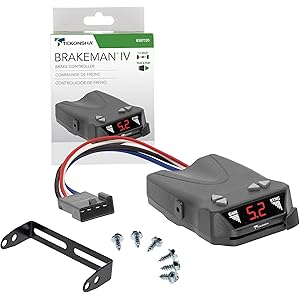As a homeowner, I understand the weight that financial decisions can carry. When I purchased my manufactured home, I was thrilled about the possibilities it offered. However, as time went on, I began to wonder about refinancing options that could help me save money or make improvements to my financial situation. In this article, I will share my journey and insights on whether it’s possible to refinance a manufactured home, exploring various options available to homeowners like us.
Understanding Manufactured Homes
Before diving into refinancing, it’s essential to understand what manufactured homes are. Manufactured homes are built in a factory and then transported to the site where they are set up. They differ from traditional homes in several key ways:
- Cost-effective: Manufactured homes often come at a lower price point than traditional site-built homes.
- Time-efficient: The construction process is generally quicker, allowing homeowners to move in sooner.
- Mobility: Many manufactured homes can be moved if necessary, providing flexibility.
However, these advantages can also come with challenges, particularly concerning financing options. Lenders often view manufactured homes differently than traditional homes, which can impact refinancing opportunities.
The Basics of Refinancing
Refinancing involves replacing your existing mortgage with a new one, typically to achieve a lower interest rate, change loan terms, or access home equity. This process can lead to significant savings over time. But can you do this with a manufactured home? Let’s explore.
Can You Refinance a Manufactured Home?
Yes, it is indeed possible to refinance a manufactured home, but it comes with specific considerations and may vary based on several factors, including the type of loan you initially secured, the age and condition of your home, and the land it sits on.
Types of Manufactured Home Loans
To fully understand refinancing options, I found it crucial to differentiate between the types of loans available for manufactured homes:
- Chattel Loans: These loans are secured against the home itself rather than the land. They typically come with higher interest rates and shorter terms.
- Real Estate Loans: If the manufactured home is permanently affixed to the land, it can be financed like a traditional home, which generally offers more favorable terms.
- FHA Loans: The Federal Housing Administration (FHA) insures loans for manufactured homes that meet specific criteria, making them accessible to more buyers.
Understanding these distinctions is critical when considering refinancing options. If your manufactured home is classified as real estate, you may have more pathways for refinancing.
Factors to Consider When Refinancing
When I began thinking about refinancing my manufactured home, I realized several factors would influence my decision:
1. Credit Score
Your credit score plays a pivotal role in refinancing. A higher score can lead to better interest rates. I made it a priority to check my score and address any issues before applying for refinancing.
2. Home Equity
Equity is the difference between what you owe on your mortgage and the current value of your home. If your manufactured home has appreciated in value since purchase, you may have enough equity to refinance and access cash for renovations or debt consolidation.
3. Loan Type
The type of loan you have will determine your refinancing options. If you have a chattel loan, you may face more challenges compared to a real estate loan. Understanding your loan type is crucial to making informed decisions.
4. Current Interest Rates
Monitoring interest rates is vital. I kept an eye on market trends, as refinancing during lower interest periods can lead to significant savings.
Refinancing Options for Manufactured Homes
Now that we understand the factors influencing refinancing, let’s explore the options available for refinancing a manufactured home:
1. Traditional Lenders
Many banks and credit unions offer refinancing for manufactured homes, particularly those that qualify as real estate. I approached my local credit union, which provided various options tailored for manufactured homeowners.
2. FHA Streamline Refinance
If you financed your manufactured home with an FHA loan, you might qualify for an FHA Streamline Refinance. This option allows for a simplified refinancing process without requiring an appraisal or extensive documentation. I found this to be a convenient option to lower my interest rate.
3. VA Loans
Veterans may also refinance their manufactured homes through the Department of Veterans Affairs (VA). The VA offers favorable terms and conditions, making it an excellent choice for those who qualify. I spoke with a veteran friend who shared his positive experience with VA refinancing.
4. Personal Loans
If refinancing isn’t an option, I also learned that personal loans could be an alternative to access cash for renovations or consolidating debt. While these may come with higher interest rates, they can be a viable solution for some.
Case Studies: Real-World Examples
To further illustrate the refinancing process, I want to share a couple of case studies that highlight different scenarios and outcomes:
Case Study 1: The Successful FHA Streamline
Sarah purchased her manufactured home with an FHA loan several years ago. After noticing a drop in interest rates, she decided to explore the FHA Streamline Refinance option. With minimal paperwork and no appraisal needed, Sarah successfully refinanced her loan, reducing her monthly payment by $150. This not only provided immediate savings but also allowed her to allocate more funds toward home improvements.
Case Study 2: Chattel Loan Challenges
On the other hand, John financed his manufactured home with a chattel loan. When he attempted to refinance, he faced challenges due to the higher interest rates associated with chattel loans. After doing some research, he learned about the possibility of converting his chattel loan into a real estate loan by purchasing the land where his home was located. Once he made this change, he successfully refinanced and lowered his interest rate significantly.
Understanding the Refinancing Process
The refinancing process can seem daunting, but breaking it down into manageable steps helped me navigate it smoothly:
- Assess Your Current Situation: Review your current mortgage, interest rates, and financial goals.
- Improve Your Credit Score: Take steps to boost your score, such as paying down debt and making timely payments.
- Shop Around: Contact multiple lenders to compare rates and terms. Don’t hesitate to negotiate.
- Gather Documentation: Prepare necessary documents, including income verification, tax returns, and information about your home.
- Submit Your Application: Once you find a lender, submit your application and await approval.
- Close the Loan: If approved, review the closing documents carefully before signing.
Each step requires careful consideration, and I found it beneficial to stay organized and informed throughout the process.
Potential Pitfalls to Avoid
While refinancing can offer significant benefits, there are also pitfalls to avoid:
- Ignoring Fees: Be aware of closing costs and other fees that may impact savings.
- Overlooking Loan Terms: Always read the fine print to understand the terms of the new loan fully.
- Not Seeking Professional Advice: Consulting with a financial advisor or mortgage broker can provide valuable insights.
By being mindful of these potential pitfalls, I was able to make more informed choices during my refinancing journey.
Frequently Asked Questions (FAQ)
1. Can I refinance a manufactured home if it’s not on a permanent foundation?
Refinancing options may be limited for manufactured homes not on a permanent foundation, as many lenders require this for real estate loans. However, you may still explore chattel loans or other alternatives.
2. What is the minimum credit score needed to refinance a manufactured home?
While requirements vary by lender, a credit score of at least 620 is typically recommended for refinancing. Higher scores may provide better interest rates and terms.
3. Are there government programs available for refinancing manufactured homes?
Yes, programs like FHA and VA loans offer refinancing options specifically for manufactured homes, making homeownership more accessible.
4. How long does the refinancing process take?
The refinancing process can take anywhere from 30 to 60 days, depending on various factors such as lender processing times and document requirements.
Conclusion
In conclusion, refinancing a manufactured home is not only possible but can be a strategic move to improve your financial situation. By understanding your options, evaluating your circumstances, and diligently researching lenders, you can navigate the refinancing process successfully. Whether you’re looking to lower your interest rate, access home equity, or switch loan types, there are pathways available. I encourage you to explore these options and take charge of your financial future.
If you found this article helpful, consider signing up for our newsletter for more insights and tips on homeownership and financing. Don’t forget to share this article with friends and on social media! Together, we can empower more homeowners to make informed financial decisions.
Tekonsha 8507120 Brakeman IV, Time-Delay Brake Controller For Trailers with 1-4 Axles, Compatible with Ford, GM, Chevy, Dodge, RAM, Toyota, Jeep. Wiring harness sold separately.
$79.99 (as of November 15, 2025 07:52 GMT -03:00 - More infoProduct prices and availability are accurate as of the date/time indicated and are subject to change. Any price and availability information displayed on [relevant Amazon Site(s), as applicable] at the time of purchase will apply to the purchase of this product.)
Sign up for our newsletter and stay up to date with exclusive news
that can transform your routine!





